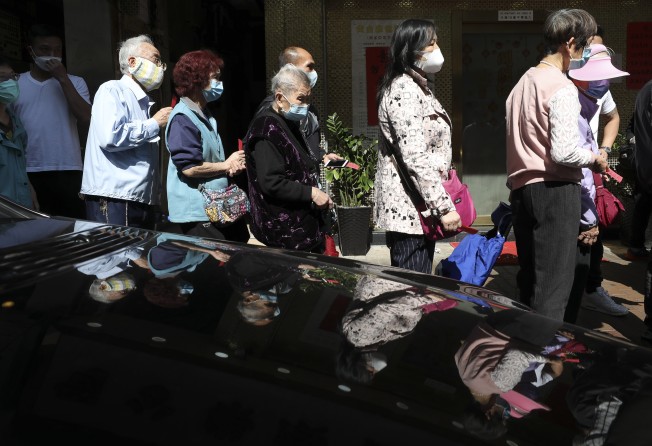Ignore ‘short-term noise’ like coronavirus, Hong Kong protests and focus on US health care stocks, says Charles Schwab
- The American bank and brokerage says US health care is the only sector guaranteed to generate long-term growth as an ageing population ensures demand
- Hong Kong’s civil unrest and the Covid-19 crisis are merely ‘noise’ in the market and investors should not let ‘knee-jerk reactions’ affect their long-term financial planning, says managing director Michael Fong

Investors should dismiss “short-term noise” like the anti-government protests that have rocked Hong Kong and the outbreak of coronavirus if they want their portfolio to work for them in the long run, according to Charles Schwab.
The American bank and brokerage recommended US health care stocks as the only reliable long-term investment.
The civil unrest that has crippled Hong Kong’s economy and the current Covid-19 crisis are merely “noise” in the market and investors should not let “knee-jerk reactions” affect their long-term financial planning, said Michael Fong, managing director at Schwab.
“We feel that focusing upon long-term is much more important than letting short-term noise impact decisions,” said Fong in an interview in late January. “Take away the noise and actually focus on fundamentals. [Investors should] focus on looking at what they’re trying to achieve as a long-term goal.
“That, actually, is a very important element of financial planning. In reality, that is [important] when issues like this come up, like the virus or any other issues in the market.”
Fong’s view is echoed by Ricky Tang, deputy head of multi-asset product, North Asia, at Schroders. He said investors should avoid “knee-jerk reactions” like the sell-off sparked by coronavirus in sectors like consumption, and the rush to buy pharmaceutical companies, seen as benefiting from the outbreak.
“These crowding or herding behaviours tend to be short-lived, and ultimately reverse themselves as reality sets in,” said Tang in an email last week. “As such, rather than chasing the crowd and trying to be part of the herd, which could potentially infect your portfolio with poor performance, the wise response to these market volatilities is to focus on long-term outcomes, and ensure your portfolio has some investments which are more resilient to smooth out the volatility.”
Health care in the US is the “only sector” that “really has some potential”, said Peter Yiu, associate director and private client adviser at Charles Schwab. “We’re all getting older and more and more people are getting older. So in the long run, health care should be a sector that will benefit from that trend.”
Stocks in the sector include drug maker Pfizer, medical device company Medtronic, and Johnson& Johnson, which produces medical devices, pharmaceutical and consumer packaged goods.
In an interview in late January, Yiu said the recommendation is despite health care being “one of the worst sectors on a relative basis” last year in terms of share price, even though it still “went up about 18 per cent”. In contrast, the technology sector surged “48 per cent on average” last year, he said.
“It will be pretty difficult to repeat that kind of performance again this year,” added Yiu, referring to the tech sector’s growth. “We like technology in the long run. But from a diversification perspective, it might be the time when you balance your portfolio.
“[For] growth or large cap stocks, they do not always lead. A lot of times, they take rotations in terms of the leadership.”